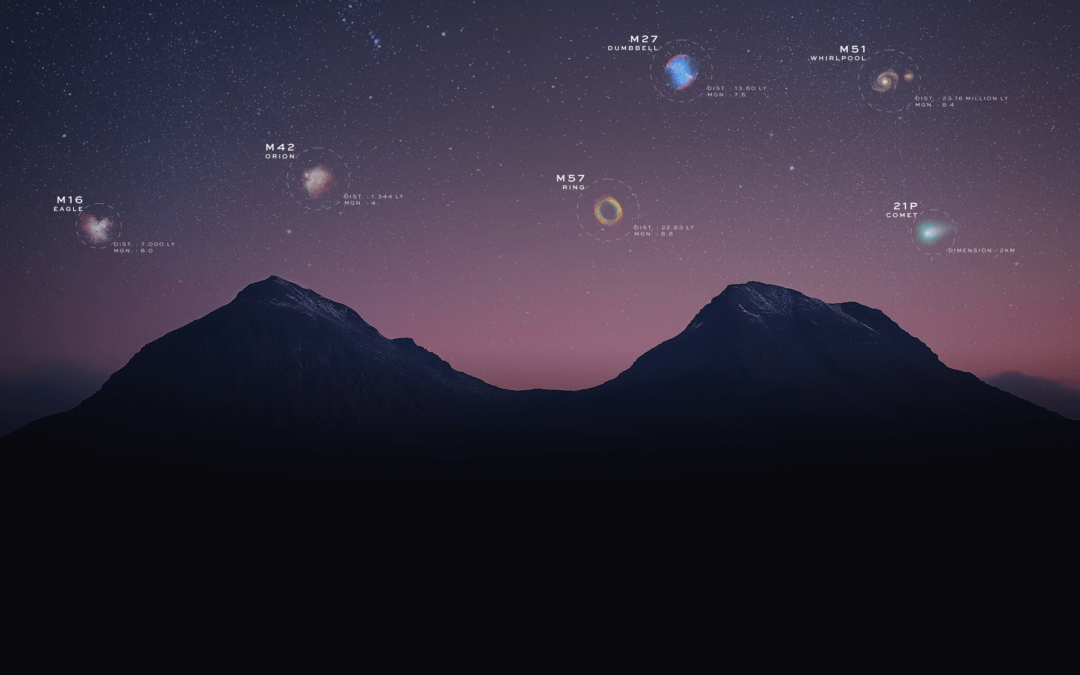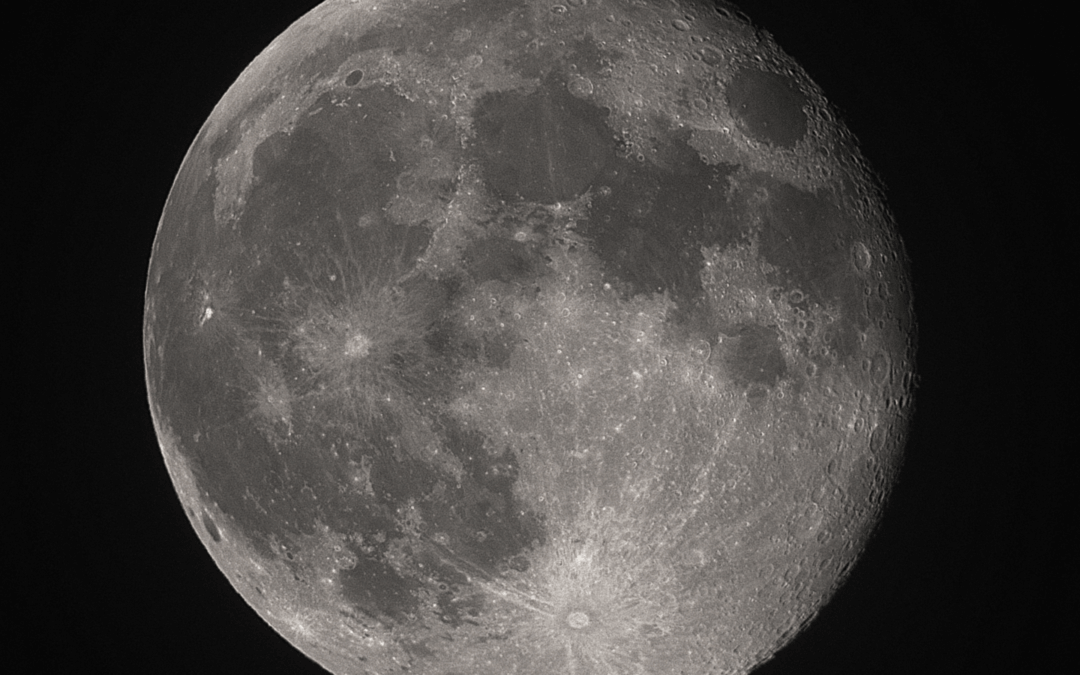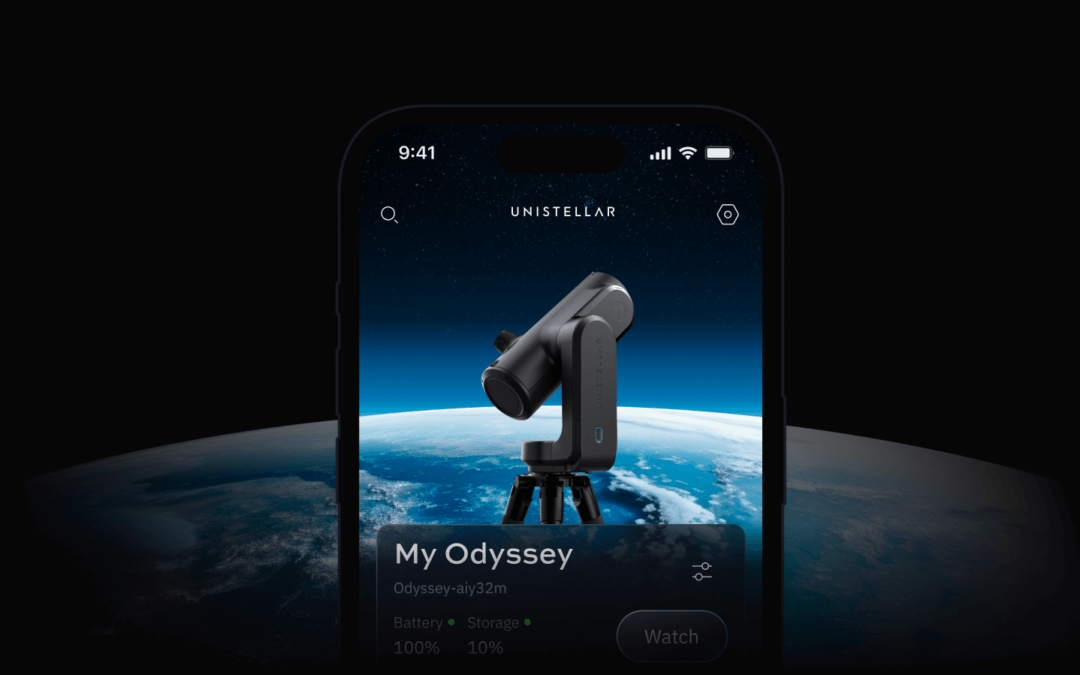Citizen scientists have another opportunity to detect one of the Lucy spacecraft’s targets, the binary Trojan asteroid Eurybates! On the night of December 9-10, Eurybates will pass in front of a distant star from our view here on Earth, an event known as an occultation. On December 10 at 3:08 AM JST (6:08 PM UTC December 9), this occultation will be visible across the island of Japan.
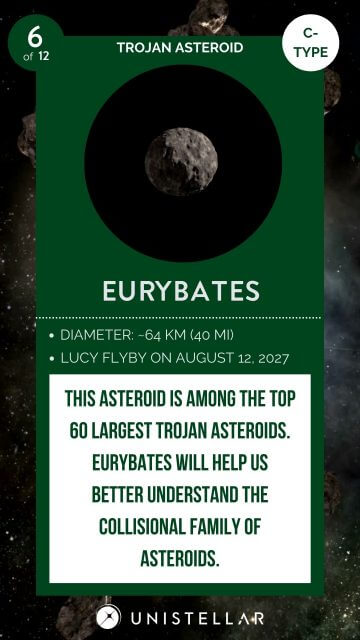
Lucy Mission Trading Card #6: Eurybates
NASA’s Lucy Mission, the first ever mission toward the Trojan asteroid swarms, launched earlier this year on October 16. Our team met up with citizen astronomers from the Unistellar Network who were invited to attend, and they captured this video of the launch!
The Lucy spacecraft will visit 5 different Trojan asteroids and will provide new insights into these primordial objects that formed the planets of our solar system, the origins of Earth, and even the formation of life.
The Lucy spacecraft is scheduled to visit Eurybates in August 2027. Among the 60 largest Trojan asteroids, Eurybates has one known moon named Queta. This Trojan asteroid was discovered in 1973 by the Dutch astronomer couple Ingrid and Cornelis van Houten, along with the Dutch–American astronomer Tom Gehrels.
Unistellar’s Network has already detected three Trojan asteroids that NASA’s Lucy spacecraft will visit: 617 Patroclus, 21900 Orus and 11351 Leucus.
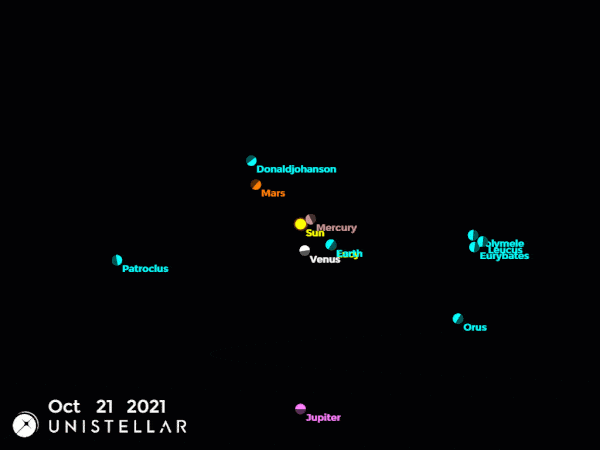
NASA Lucy Spacecraft Trajectory, simulation by Tony Dunn
Ready to observe?
If you detect the shadow of Eurybates, you can help NASA improve Lucy’s guidance system!
Check out our Asteroid Occultation Predictions page for more details on this occultation including location, timing, and more.
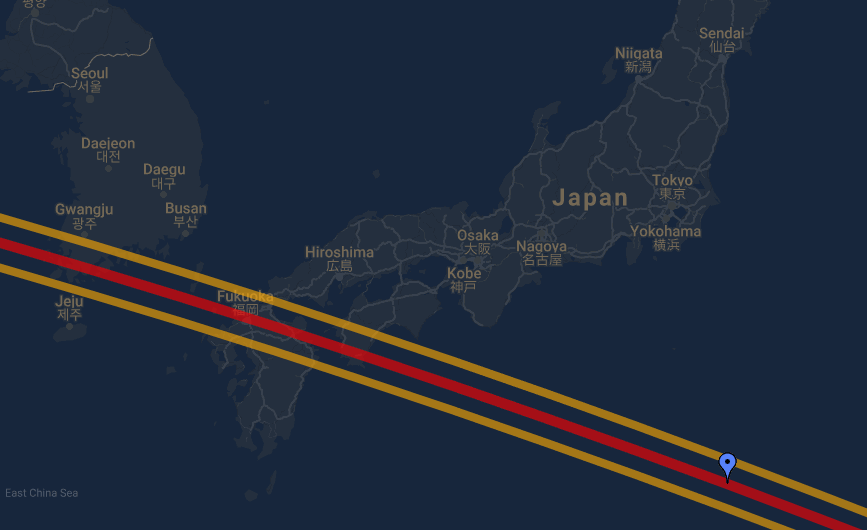
- Click on Japan on the drop-down menu and scroll down the page until you find 3548 Eurybates. Then, click on it.
- A map of Japan with the path of the occultation should appear below.
- Zoom into the map so you can see the exact location where you can observe this occultation.
- Check the information above the map to make sure you have the correct parameters and observe for the correct duration.
If you have any questions, please reach out to us at [email protected].
Further readings
3 Reasons to observe this month
Every month, discover three unmissable celestial events to observe with your Unistellar telescope.
Observing Eclipses on Jupiter: Cosmic Spectacles Through a Telescope
The latest Unistellar App Update, version V3.0, is now live. Explore a smooth stargazing experience !
Unistellar Community Included In Multiple Scientific Papers
Did you know Unistellar Citizen Astronomers are often cited in published scientific papers? Find out how you can contribute too!
What Are the Names of All the Full Moons in 2024?
Discover the enchanting names of the full moons in 2024. Delve into the unique character of each lunar spectacle and embrace the allure of the night sky.
New Unistellar App Update: Version 3.0
The latest Unistellar App Update, version V3.0, is now live. Explore a smooth stargazing experience !
What to Observe This November: Open Star Clusters and More
These Halloween deep-sky objects will add some light to those dark, spooky nights. Treats, tricks, and telescopes await!

